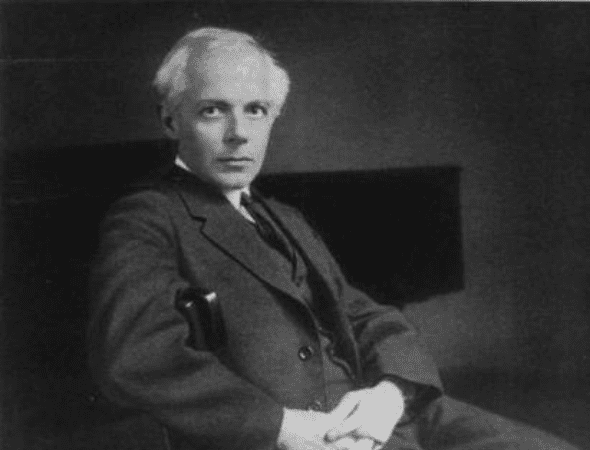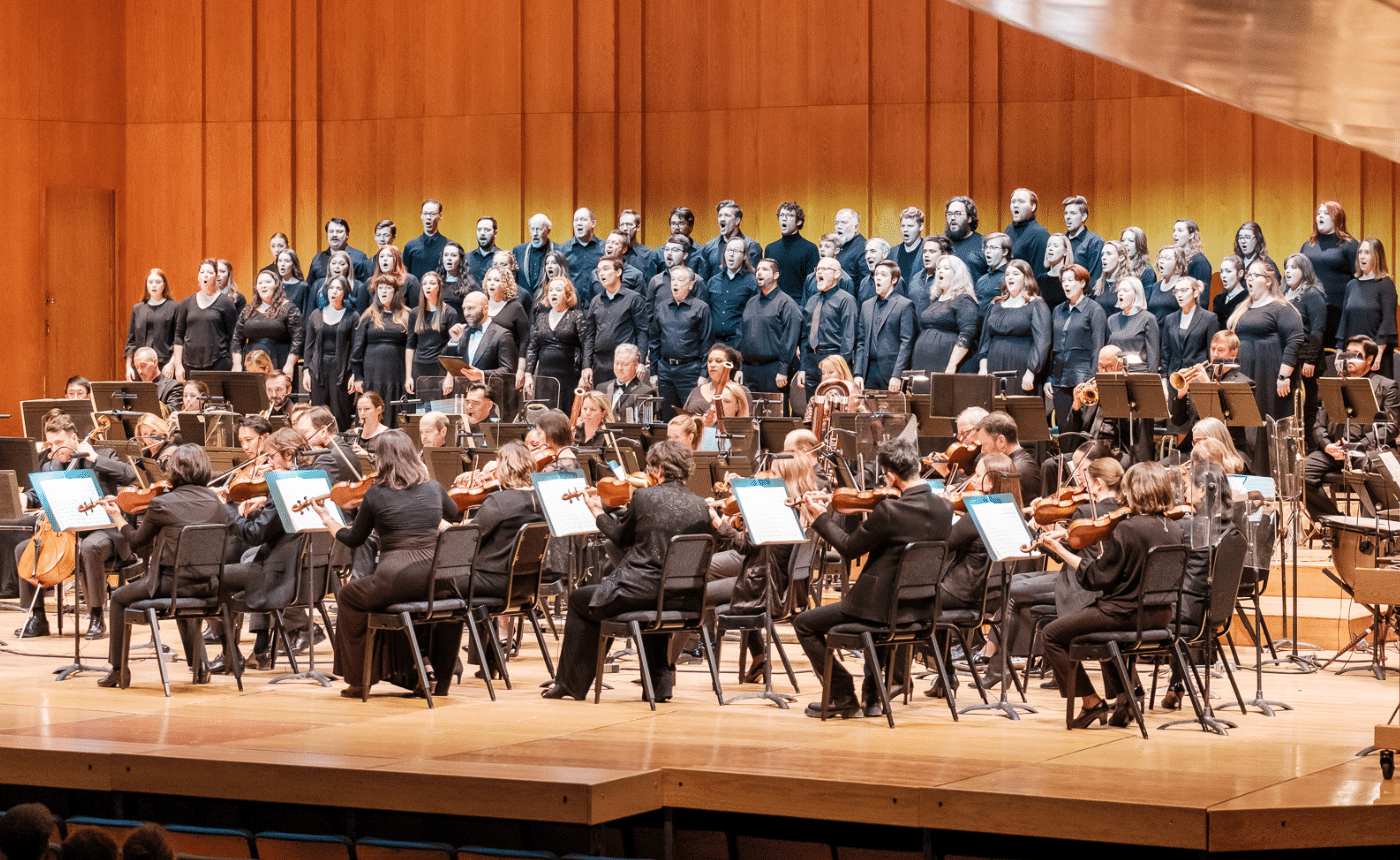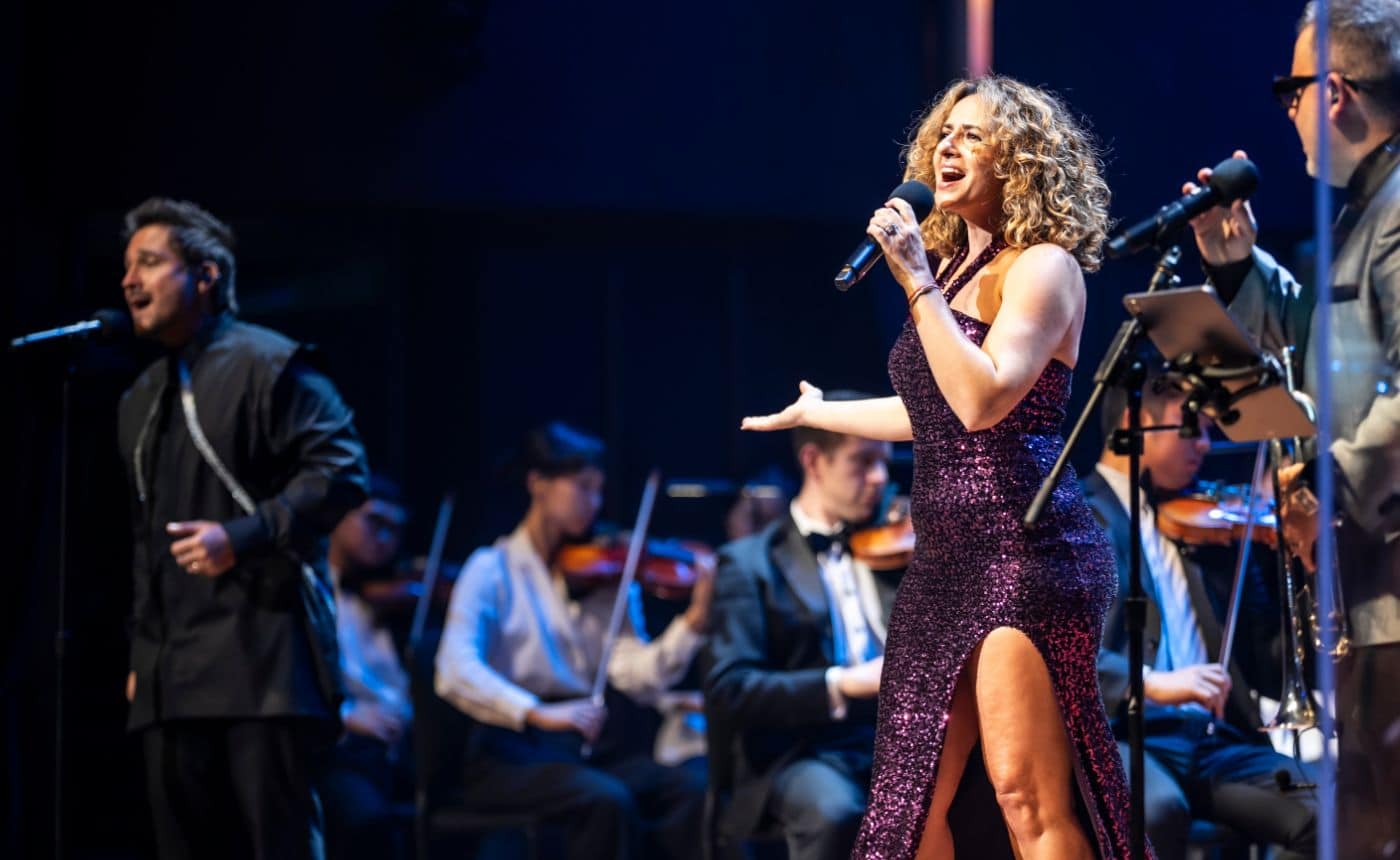BARTÓK: Divertimento for String Orchestra
by Jeff Counts
Bartók’s essential utterances for the string instrument family are more than indispensable additions to the repertory of professional string quartets and chamber music societies, they are defining pillars of 20th century musical thought. The quartets alone deserve (and have gotten, many times over) lifetimes of study to unpack the galactic scope of their ambition. Bartók composed the Divertimento in an uncharacteristic rush during the summer of 1939. Over the course of just two weeks, he fulfilled the requirements of a commission from the Swiss conductor and tastemaker Paul Sacher. Sacher, who had also commissioned the incredible Music for Strings, Percussion and Celesta in 1936, provided Bartók access to his chalet in Saanen (which included a full-time chef) for privacy and reflection. Sacher had been thrilled with the earlier project but wanted something lighter (read: less technically challenging) to come from the Divertimento collaboration. The experience struck Bartók as particularly antique. “I feel like a musician of the olden time,” he wrote to his son, “the invited guest of a patron of the arts.” Like a 17th century court composer then, Bartók worked with single-minded focus during the run-up to the war. “The newspapers are full of military articles,” he continued in his letter, admitting that he was “worried about whether I shall be able to get home from here if this or that happens.” This or that did happen, of course, just weeks later when Germany invaded Poland, but the Divertimento shows none of this mounting external strife. It is an homage to quieter times, when genial entertainments like classical-era divertimenti could be crafted in environments of true tranquility, not in temporary sensory deprivation chambers like the one enjoyed by Bartók in Switzerland. Bartók’s Divertimento is a unique artifact, one only he could have written. It is old-fashioned but eager, fussy, and folksy, with all of his usual inventiveness on full display.












